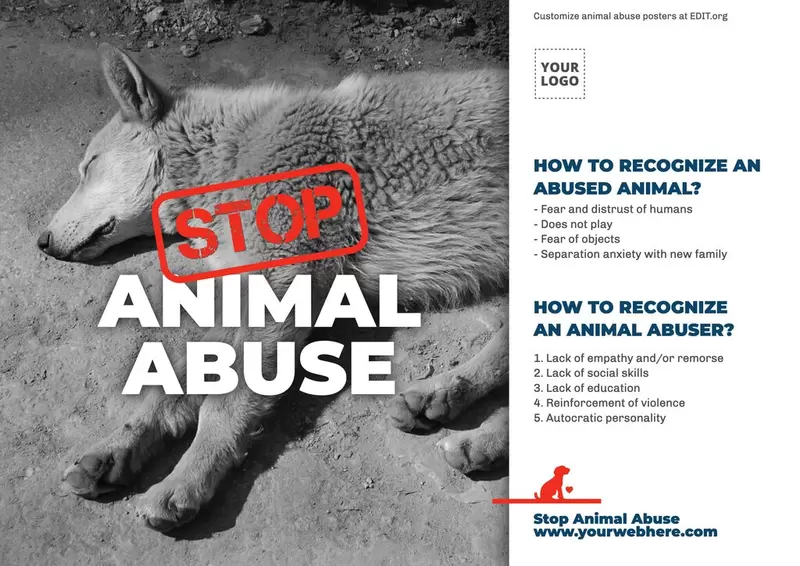Animal cruelty is a distressing reality that many communities face. Indeed, the mere thought of witnessing a neighbor inflict harm or neglect on an animal can be disheartening. However, taking action against such behavior is crucial. Reporting suspected animal cruelty can be fraught with tension, particularly if you live in close quarters with the alleged offender. Hence, understanding how to report these actions without jeopardizing neighborhood relations is paramount. This article details a methodical approach to navigating this sensitive issue while advocating for the innocent creatures that cannot speak for themselves.
Recognizing Animal Cruelty
Before taking any steps to report, it is vital to understand what constitutes animal cruelty. This term encapsulates a variety of acts that cause distress, suffering, or harm to animals. Instances can range from physical abuse, such as beating or torture, to neglect, which includes inadequate shelter, failure to provide food, water, or medical care. Observing signs of intimidation or fear in animals can also be indicative of cruel treatment. Your ability to accurately identify these signs will empower you when discussing your concerns with others.
Documenting Evidence
If you suspect animal cruelty, meticulous documentation is imperative. Start by documenting the occurrences with specific details. Take notes that include dates, times, and descriptions of what you have witnessed. If pertinent, photographs or video evidence can significantly bolster your case. Make sure to capture any conditions that may indicate neglect, such as a lack of food, water, or clean living space. Documenting each incident can help establish a pattern of behavior, which is particularly useful when approaching authorities or animal welfare organizations.
Assessing the Situation
Before you proceed to report, consider the dynamics of the neighborhood. Assess your relationship with your neighbor in question. Have you had cordial interactions, or are there already existing tensions? Understanding the context can help you tailor your approach. If you have a good rapport, you might consider having a preliminary discussion with your neighbor before escalating the matter. This could involve expressing your observations in a non-confrontational manner. Sometimes, a simple conversation is enough to make them aware of their behavior and encourage them to change. However, this is not always appropriate or safe, so weigh the risks carefully.
Choosing the Right Channels for Reporting
If you determine that direct communication is unfeasible or unlikely to produce a positive outcome, the next step is to identify the appropriate channels for reporting animal cruelty. Local animal control agencies, humane societies, and law enforcement are typical avenues. Research your local regulations; some areas have specific hotlines or online reporting systems. Utilizing these resources not only ensures that your concerns are documented by the right authorities but also minimizes direct confrontation, preserving your relationship with your neighbor.
Anonymous Reporting
Consider whether you prefer to report anonymously. Many agencies allow for anonymous tips, enabling you to protect your identity while ensuring that the issue is addressed. This method may alleviate the discomfort associated with potential backlash from your neighbor. However, keep in mind that anonymous reports may carry less weight than those made by direct witnesses who are willing to provide their identities. Therefore, balance the desire for anonymity with the potential impact of your report.
Understanding the Potential Repercussions
When taking action against a neighbor, it is essential to be cognizant of potential repercussions. Animal lovers often face ostracization or backlash from the accused party and their sympathizers. Prepare yourself for the possibility of strained relationships, even if you are acting out of genuine concern. The nature of the allegations can lead to tensions escalating further within your community, and it’s vital to remain steadfast in your commitment to advocating for the animals while navigating these dynamics skillfully.
Fostering Community Awareness
Beyond addressing individual instances of cruelty, fostering community awareness can serve as a preventive measure against animal abuse. Consider organizing awareness campaigns regarding proper animal care or collaborating with local animal rights organizations. This could involve hosting seminars or distributing educational materials. Promoting responsible pet ownership and humane treatment can create an environment where animal welfare is the norm, reducing the likelihood of cruelty occurring in the first place.
Legal Protections and Resources
Familiarize yourself with the legal protections available for reporting animal cruelty in your jurisdiction. Many areas offer resources for whistleblowers, providing legal protections that may shield you from negative repercussions. Knowing these rights and laws will bolster your resolve to report incidences due to an understanding that the legal system is on your side when you advocate for those who cannot advocate for themselves.
Conclusion
Reporting a neighbor for animal cruelty is undoubtedly a delicate task that requires careful consideration and planning. By recognizing the signs of abuse, documenting evidence, and choosing the right avenues for reporting, you can effectively advocate for the protection of animals. Prioritizing the well-being of vulnerable creatures will not only help protect them but may also encourage a culture of responsibility and compassion within your community. Amidst concerns and potential strife, keep the focus on what truly matters—the welfare of animals who depend on us for their voice and safety.








